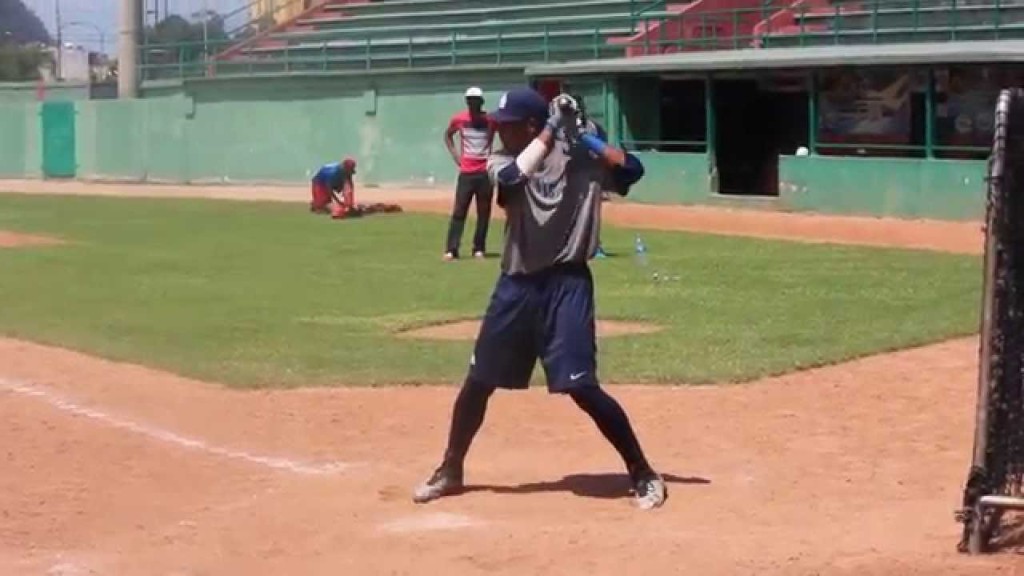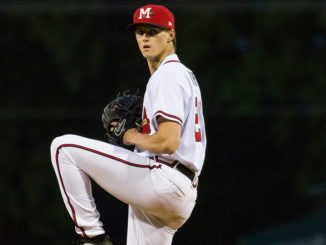
The Atlanta Braves are set to blow past the international spending cap.
A report from Ben Badler of Baseball America came out today, in which Badler identified three teams that seem to be setting up to be big players in the international free agent signing period this year. The Atlanta Braves, the Washington Nationals, and the San Diego Padres were all listed as teams willing to spend enough to incur penalties during the upcoming signing period. What does this mean for the Braves?
The international signing period begins on July 2nd. Teams are allocated a pool of money from which they can offer signing bonuses to certain qualified international free agents. The bonus pools are based upon order of finish, much like the draft. Each team begins with $700,000 in slot money, and receives four extra slots with differing values. A team can’t spend more in a signing period than the total of its cumulative slot values without incurring penalties. A team can acquire up to 50% added bonus value by trading with other teams. This is why the Braves traded Cody Martin to the Oakland A’s last season; they needed to acquire more slot money to avoid penalties for over-spending. If a team exceeds their spending cap by more than 10%, they incur a 100% penalty. If they exceed the spending cap by more than 15%, they incur the 100% penalty, AND they are prohibited from spending more than $300,000 in the international signing period for the following two seasons.
It has long been speculated that the Braves would pursue some of the top international talent available. Keith Law has previously reported that the Atlanta Braves have a handshake agreement with Venezuelan shortstop Kevin Maitan. Maitan is considered one of the top available players in this class. At 16-years old, he’s already drawing comparisons to Miguel Cabrera and Juan Gonzalez. His skills with the bat are advanced for his age, but what sets him apart from other young prospects is that he is also more physically advanced than others of his age. From ESPN in July 2015:
The huge name for next year’s J2 class is Venezuelan SS Kevin Maitan, a monstrous teenager with an elite body, advanced feel to hit and big-time power projection. He has been on the radar for international scouts for years and is being compared to some generational talents. A scout I talked to whose team has no prayer of signing Maitan said his club has an overall 70 grade on him, the sort of grade that players near the apex of top 100 prospects lists only sometimes garner. And three sources have told ESPN colleague Keith Law that the Atlanta Braves have already locked up Maitan for $4.25 million in advance of the July 2, 2016, signing period. As Keith noted, such deals are “technically prohibited but are de rigueur in that market.”
In addition to Maitan, the Braves are said to be the leaders to sign Venezuelan catcher Abraham Gutierrez. Newly appointed Atlanta Braves Assistant Director of Baseball Operations Kiley McDaniel wrote about Guitierrez when McDaniel was a writer at Fangraphs. He compared Gutierrez favorably as a prospect with Maitan:
Comment From Hello:
How Big is the gap between Maitan and guys like Abraham Gutierrez, Starling Heredia or and American like Ronald Washington?12:43 Kiley McDaniel:
Still super early on all these guys. Maitan over Gutierrez but still pretty close. Heredia right there with both of them as top guys in a class, but more certainty given Heredia’s age. Washington hasn’t been scouted as much since he’s a US prep underclassman, but his tools are in the general vicinity, probably behind these three but not by much.
The Braves will be big players in the Latin American market this year, from nearly all accounts. They can acquire good, young prospects cheaply and without it costing them any of the prospects they have already acquired. And, given that the international signing period is likely to be a major discussion point for the replacement of the Collective Bargaining Agreement that expires in December, it is entirely possible that the Braves can scream past the spending cap this year and not suffer any penalty in future years.
What Does This Mean For Atlanta?
For all those who wondered why, despite reportedly having around $20-$23 Million available, Atlanta didn’t chase a big-time free agent like Yoenis Cespedes, Justin Upton, or David Price, this is why. Ben Badler suggests the Braves are prepared to spend about what the New York Yankees spent in 2014-2015, which is about $17 Million. Last year’s #3 team in the draft (the same rankings used for the international slot assignments) received $4.586 Million to sign their free agents. If we assume that will increase slightly this year, then the Braves will probably have somewhere around $5.0 Million to sign their free agent targets. The offer that Keith Law referenced the Braves have made with Kevin Maitan is reportedly almost as much as their entire slot total for the signing period. It’s worth noting that the type of ‘handshake deal’ that Law referenced with Maitan is illegal and unenforceable under current rules. Essentially, the Braves are hoping a teenager honors his commitment and doesn’t change his mind. As fans of college football see every January, that isn’t always a given.
If the Braves spend $17 Million, then it will actually cost them about $28 Million in cash. They will have exceeded the 10% allowed overage by ~ $11.5 Million, so they will owe the 100% tax, which is $11.5 Million. They will also owe the actual bonuses to the players, which would be $17 Million. With around $28 Million to be allocated to future players, there was no real payroll flexibility to target a guy who might make the team a little better now. And unlike the signing bonuses, which can be spread over time, the penalties are due when incurred.
The Braves don’t have a revenue base yet whereby they can absorb another large contract and still make moves like this. But signing these international free agents is apparently a key part of the rebuild plan they have in place, and it it’s the type of move that will make the team competitive for many years, and not just one year. The goal along has been to build a team to win many years, and not just any particular year. Will this help? We’ll find out in five years.




Leave a Reply